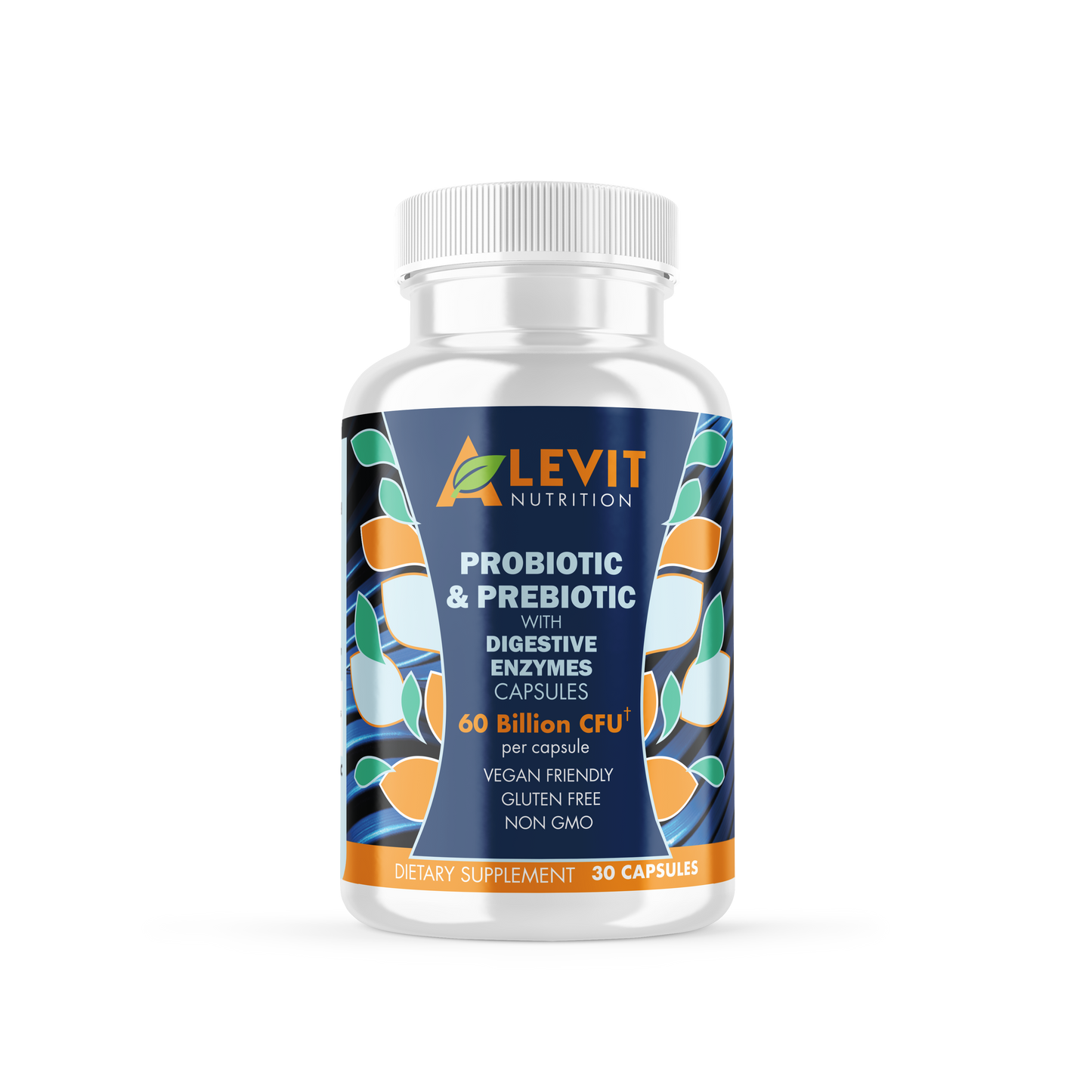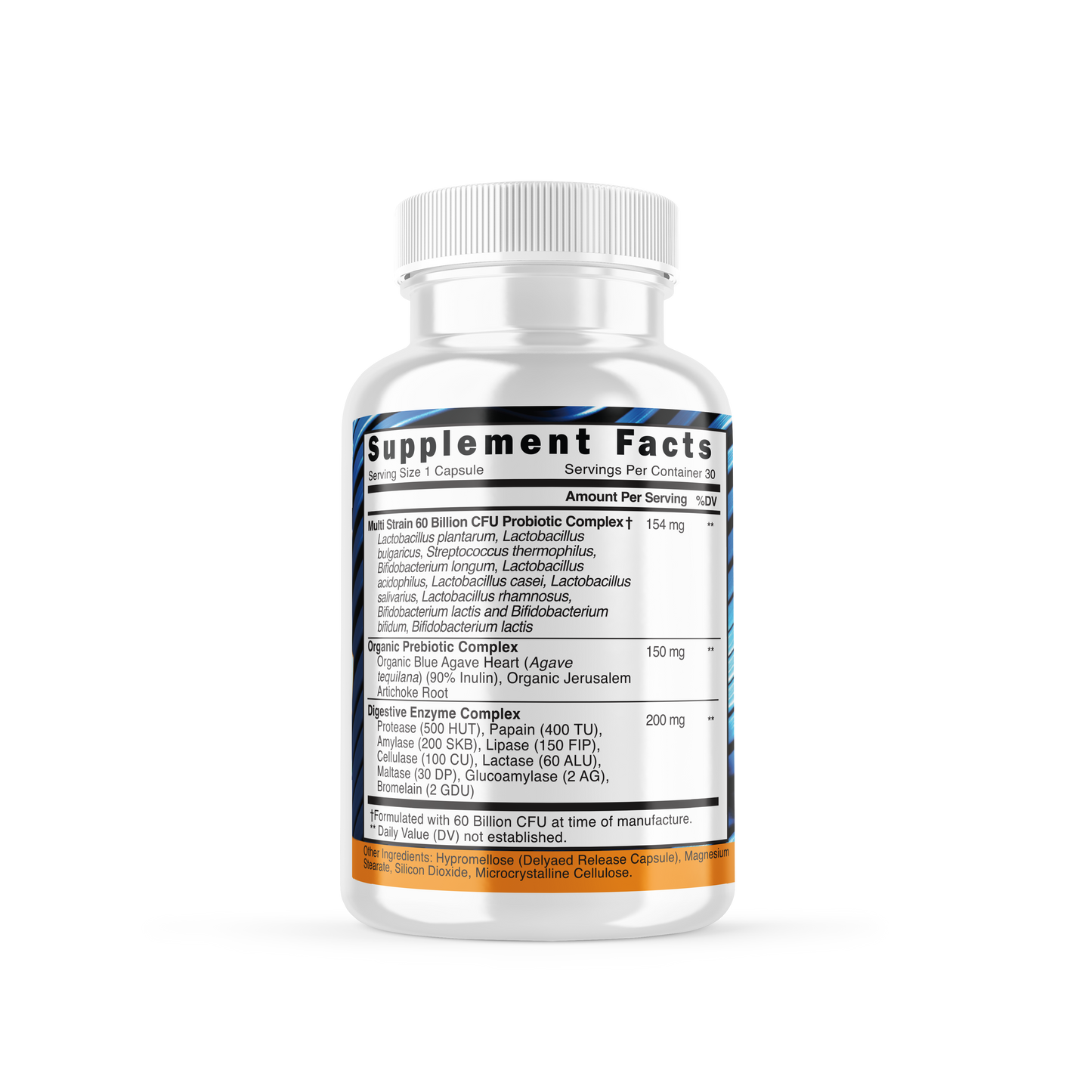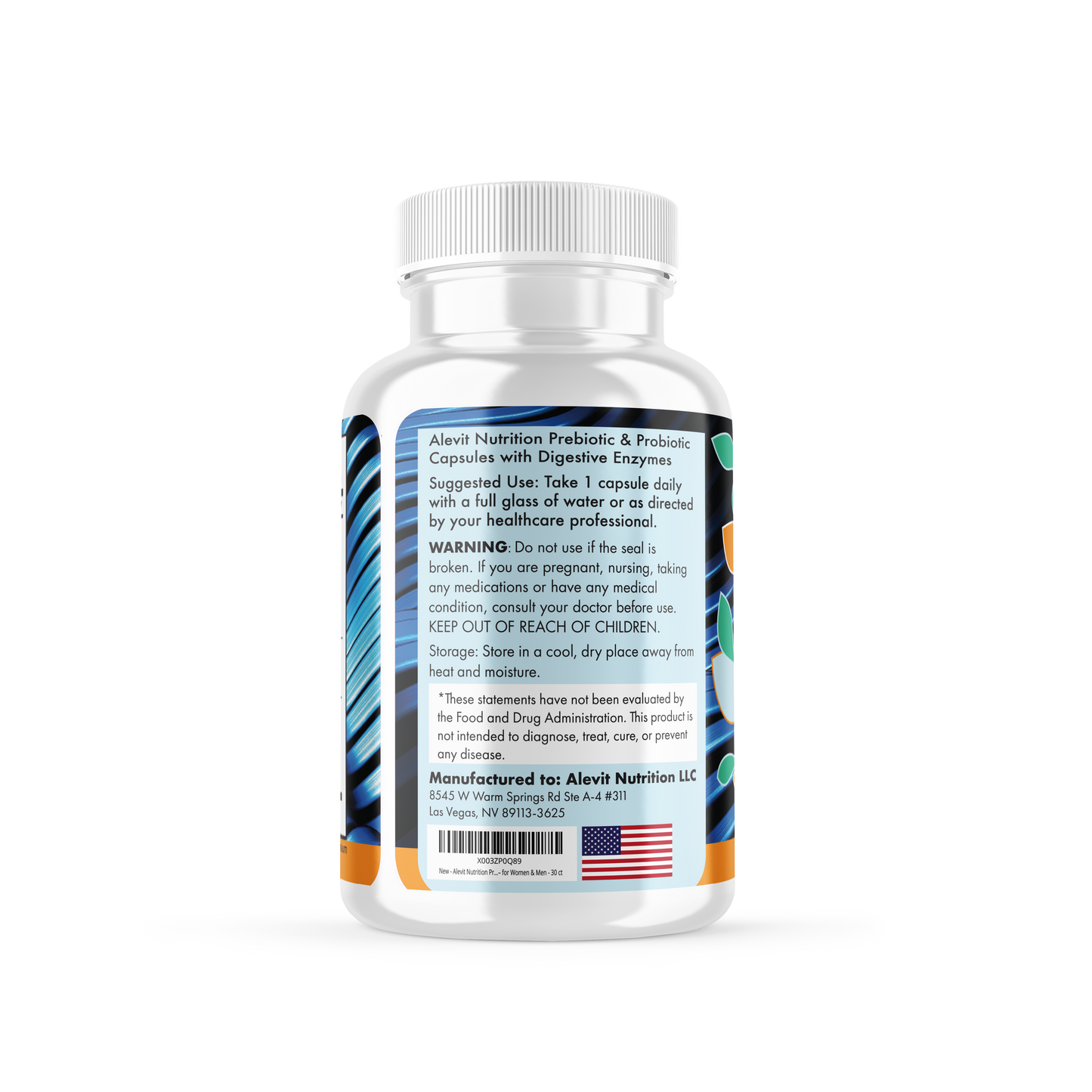
- Irritable bowel syndrome (IBS): Some studies suggest that L. plantarum can improve bowel frequency and stool consistency, while others have found no benefit.
- Functional diarrhea: A South Korean trial found that L. plantarum probiotics can reduce the frequency of loose stools and other symptoms of functional diarrhea.
- Cholesterol: L. plantarum may help reduce cholesterol levels in adipose tissue and triglycerides.
-
Blood pressure:L. plantarum may play a role in regulating blood pressure.
- Digestive health: May help with digestion, prevent diarrhea, and relieve symptoms of irritable bowel syndrome
- Immune system: May boost the immune system by increasing Natural Killer cells and T cells, and reducing interleukin-8, a pro-inflammatory cytokine
- Gut health: May support gut barrier integrity and reduce leaky gut symptoms
- Anti-inflammatory: May have anti-inflammatory effects, such as calming skin inflammation and improving inflammation scores in mice with colitis
- Other health conditions: May help with conditions such as rosacea, acne, eczema, high triglycerides, LDL levels, and total cholesterol
- Digestive health: S. thermophilus can help break down food, absorb nutrients, and fight off harmful organisms. It can also help with diarrhea, constipation, colic, and other conditions.
- Lactose intolerance: S. thermophilus can break down milk sugar into lactic acid, which can help with symptoms like bloating, gas, and vomiting.
- Immune system: S. thermophilus can contribute to the normal functioning of the immune system.Intestinal ecosystem: S. thermophilus synthesizes butyrate, a short-chain fatty acid that can have a beneficial effect on the intestinal ecosystem.
- Gut health: B. longum can help break down food, absorb nutrients, and protect the intestinal barrier. It can also balance the gut microbiota, which can help with colitis symptoms. B. longum secretes chemicals called bacteriocins that can kill harmful bacteria, and it can also bind to receptor sites on intestinal cells to crowd out harmful bacteria.
- Stress and anxiety: In animal studies, B. longum 1714 has shown positive effects on stress-, anxiety-, and depression-related behavior. In healthy adults, B. longum 1714 has been shown to reduce perceived stress and anxiety in response to acute stress.
- Brain activity: B. longum 1714 has also been shown to alter brain wave activity patterns in healthy adults, which may be associated with increased energy and changes in distress.
- Constipation: Some strains of B. longum can help relieve constipation by improving the use of arabinan, an indigestible fiber, in the gut.
- Immune system: Research suggests that L. acidophilus may improve the body's natural immune response by enhancing the gut barrier and white blood cell activity. One study found that supplements containing L. acidophilus for six months reduced the duration of antibiotic treatment, fever, and cough in children.
- Digestion: L. acidophilus helps the digestive system break down sugars like lactose into lactic acid. Research suggests that probiotics can help improve the balance of beneficial and harmful bacteria in the gut, which can support digestion.
- Cholesterol: Research has found that L. acidophilus may be more effective than other probiotics at reducing total cholesterol levels.
- Infections: L. acidophilus may help treat diarrhea caused by infections or antibiotics, vaginal inflammation (bacterial vaginosis), and yeast infections in the mouth or vagina.
- Other conditions: L. acidophilus may also help improve symptoms of irritable bowel syndrome and urinary tract infections, and may promote weight loss.
- Digestive health: Regulating the digestive system, preventing or treating diarrhea, and improving bowel movements.
- Immune system: Regulating the immune system of the intestines and supporting immune health.
- Pathogens: Protecting the body against pathogens, reducing their growth, and reducing their adhesion.
- Other conditions: Some studies have shown that L. casei strain Shirota can help with constipation, upper respiratory tract infections (URTIs), and atopic dermatitis.
- Digestion: L. salivarius may help the body break down food and absorb nutrients.
- Intestinal health: L. salivarius can improve the composition of intestinal microbiota, which may promote a healthy internal environment.
- Antibacterial activity: L. salivarius UCC118 can produce a bacteriocin that inhibits the foodborne pathogen Listeria monocytogenes.
- Oral health: L. salivarius may relieve bad breath in the short term. One study also found that L. salivarius REN may reduce the risk of developing oral cancer by 95%
- Gastrointestinal health: L. rhamnosus can help prevent and treat diarrhea and gastrointestinal infections. It can also help relieve IBS symptoms and occasional constipation.
- Immune response: L. rhamnosus can stimulate immune responses that may help with vaccination or prevent certain allergic symptoms.
- Gut-brain axis: Colonization of L. rhamnosus in early life may help regulate the gut-brain axis and relieve anxiety-like behavior in adulthood.
- Teeth: L. rhamnosus may help protect teeth from decay.
L. rhamnosus is available as a dietary supplement and is also added to some foods, such as dairy products. It's also known as Lactobacillus rhamnosus GG (LGG), and is one of the most well-researched probiotic strains in the world. LGG can withstand stomach acids and bind to the digestive tract's mucosal lining. However, some people may not be able to take L. rhamnosus, especially those with short bowel syndrome or a weakened immune system.
- Digestion: B. lactis can help with digestion by digesting fiber and reducing gastrointestinal discomfort. It may also help with diarrhea, constipation, and antibiotic-associated diarrhea. A 2016 meta-analysis found that B. lactis HN019, in particular, had medium to large treatment effects in reducing intestinal transit time.
- Gut health: B. lactis can strengthen the gut's barrier functions, which can help improve the gut microbiome and bowel function.
B. lactis is also used to treat other conditions, such as colic, irritable bowel syndrome (IBS), dental cavities, and hay fever, but there isn't much scientific evidence to support these uses.
- Digestion: B. bifidum helps break down food and absorb nutrients
- Immune system: B. bifidum may boost immunity and control the immune system
- Gut health: B. bifidum can help control gut health and prevent infections
- Anti-inflammatory: Some strains of B. bifidum can inhibit inflammatory responses
- Severe infection
- Probiotic bacteria growing too quickly in people with weakened immune systems
Conclusion
Incorporating these essential probiotic strains into your diet can significantly enhance your digestive health, boost your immune system, and contribute to overall well-being. At Alevit Nutrition, we ensure our probiotic supplements contain these beneficial strains, helping you maintain a healthy lifestyle. However, it's important to note that there is no good scientific evidence to support all of these uses.




